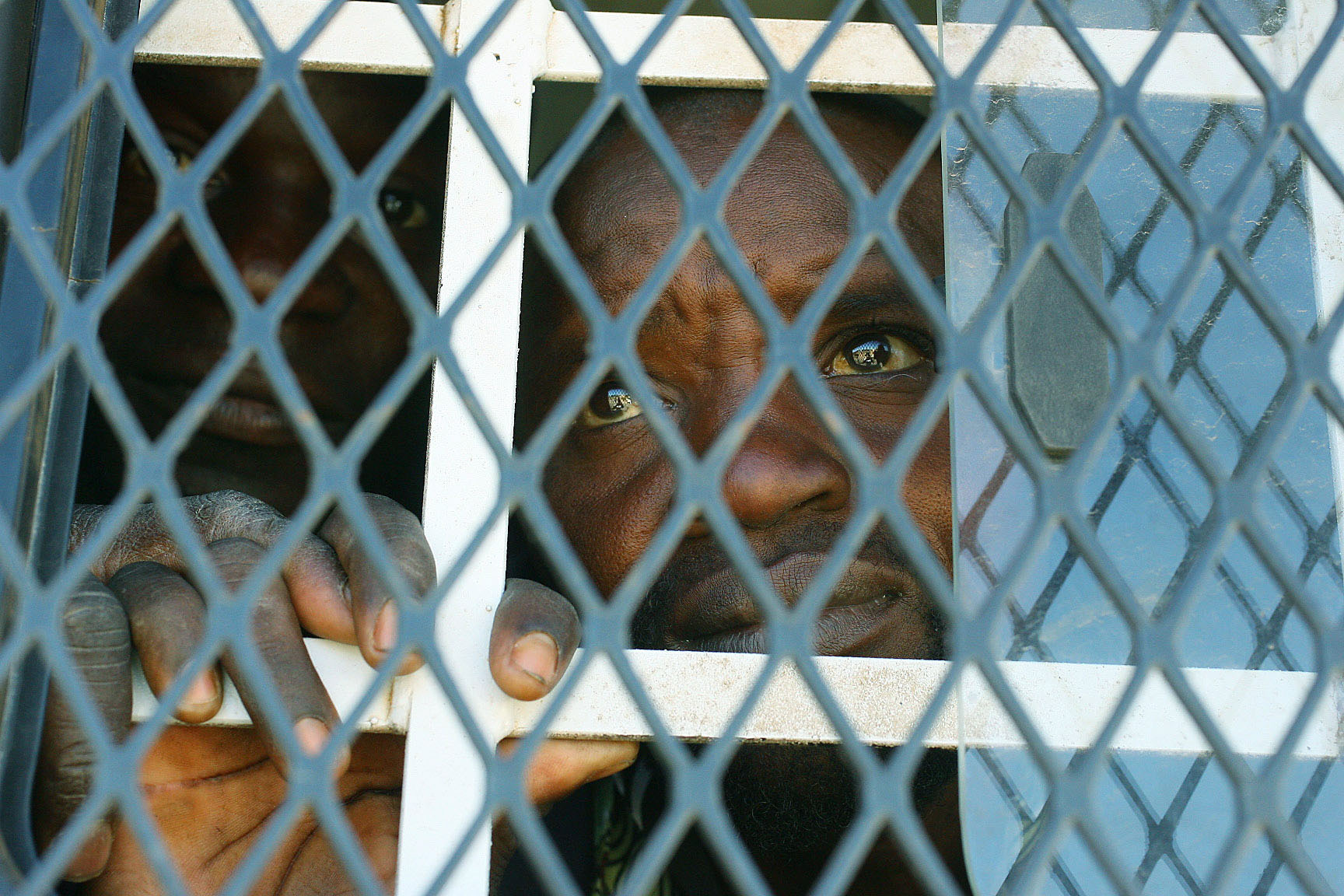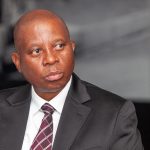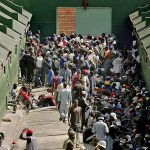SA’s border bill another anti-migrant development
The National Assembly has passed the Border Management Authority Bill that seeks to militarise the borders and is at odds with South Africa’s commitment to free movement on the continent.
Author:
5 March 2020

South Africa has moved one step closer to implementing the controversial Border Management Authority Bill, a piece of legislation that seeks to create an increasingly securitised and militarised presence along the country’s borders.
Based on the premise that South Africa is dealing with extremely porous borders, a large number of “illegal crossing of people” into the country and other forms of crime, the bill seeks to address this “crisis” and deal with the well-publicised issues of incompetent and corrupt officials at the borders. Much of the bill’s language and aims suggest South Africa is facing a large-scale invasion. It aims to solve this by creating a single authority that would coordinate efforts between the Department of Home Affairs, the South African Defence Force, the police and other state agencies.
Envisaging thousands of guards along South Africa’s nearly 4 500km land border and 4 000km coastal border, the bill places greater emphasis on securing these and fighting crime.
It would be easy to dismiss the bill as some form of Trumpian legislation, or something that mirrors the rhetoric and actions against migrants emerging from countries such as Hungary, Poland and the United Kingdom. But this bill has been in development since long before Donald Trump ran for president of the United States.
In 2017, former DA home affairs shadow minister Haniff Hoosen called it “one of the worst pieces of legislation that has come before the House”. The bill was eventually withdrawn for amendments to be made and recently came before Parliament again.
‘Confusing’ wording
The National Assembly passed the bill in Parliament this week. “The BMA Bill is long overdue,” said Minister of Home Affairs Aaron Motsoaledi. “I welcome the passing of the bill by the National Assembly. The BMA will enable the country to manage its borders in a manner that facilitates trade and plugs holes in our porous borders. These porous borders lead to, amongst others, illegal crossing of people, illicit goods, drugs, trafficking of people, particularly of women and children, and stolen vehicles.”
Motsoaledi has consistently positioned the introduction of the bill as a means to deal with cross-border migration and securing the borders. But a worrying part of the bill is that it makes no mention of the internationally accepted principle of non-refoulement, which is emphasised in the recently legislated Refugees Amendment Act. Non-refoulement refers to ensuring that a country does not refuse entry at its border to a person who may face persecution or harm if they are forced to return to their country of origin.
Related article:
“The wording of the BMA Bill is confusing and will restrict the right to non-refoulement. South Africa has an obligation to protect refugees, to this end the BMA’s primary concern should not be the refusal of vulnerable persons but rather facilitation of safe, orderly, fair and lawful regulation access,” said Sally Gandar, the head of advocacy and a legal adviser at the Scalabrini Centre in Cape Town.
In the security cluster
Perhaps the most startling part of the bill is the estimated cost associated with its realisation and the number of guards it envisages being deployed to the borders.
Motsoaledi told the home affairs portfolio committee in February that the seven departments involved with the country’s borders – including home affairs and the South African National Defence Force – had their own budgets, but that once the bill was passed into law, the department would ask the National Treasury for R3 billion for operational costs.
Project manager Elroy Africa told the committee it would cost around R3.8 billion annually, with a future anticipated cost of more than R10 billion per annum. He envisioned having more than 21 000 guards at the borders 15 to 20 years down the line to safeguard South Africa from cross-border crimes, illicit cigarette trading, theft, terrorism and other crimes.
Consortium for Refugees and Migrants South Africa (Cormsa) spokesperson Abigail Dawson said the department “made a perplexing shift into the justice, crime prevention and security cluster”, shifting their mandate to an interdepartmental effort to defend against “security threats”.
Gandar added: “We are seeing a trend toward the securitisation of migration. This is evident in the BMA Bill, but also in the Department of Home Affairs acquiring a national security mandate placing it in the security cluster.
“This appears to show that the DHA [home affairs department] views the movement of people as a risk or threat. If this is the approach that the department takes to migration, then it’s completely at odds with the free movement of people and trade on the continent.
“It also means that there will more than likely be more people arrested, detained and deported, particularly those who are not documented. Given the many barriers in accessing documentation, it is likely that the ultimate victims of this will be those who have come to South Africa because they are in need of protection under refugee law.”
Border militarisation
The urgency and desire to militarise the borders would suggest South Africa was facing some imminent foreign threat. But looking closer at the rhetoric of politicians in South Africa in recent years, this “threat” posed to the country’s sovereignty wasn’t some invading force but rather impoverished migrants seeking new opportunities and asylum seekers fleeing conflict and persecution.
Great emphasis was placed on securing South Africa’s borders during the run-up to the national elections in 2019, with the DA making tighter border controls one of its key campaign concerns. Members of the ruling ANC have also called for tighter border controls and less immigration (from presumably impoverished African countries), and used every opportunity to display their xenophobic attitudes.
Related article:
Motsoaledi has made no secret of his disdain for impoverished migrants. During his time as minister of health, instead of an introspective look at his department’s failures, he blamed migrants for the sad state of the health system in South Africa.
Now, as minister of home affairs, Motsoaledi continues to demonise migrants while heading the department as the Border Management Authority Bill moves closer to implementation.
But is it wise for the department to be pushing for a greater presence at the borders, and another entity to manage such a move, when it’s already in such a sad state?
Tough ask
An auditor-general report on the department’s handling of “illegal immigrants” highlights some dramatic failures, which would be comical if it was not for the impact they have on vulnerable migrants and asylum seekers. These lapses range from paying nearly 500% more per person per day for people to be detained at the controversial Lindela holding facility in Krugersdorp to the inability of the department to arrange a bus to deport 221 Lindela detainees.
The auditor-general found that it took the department six weeks and six days to arrange transport that was set down for 10 days. This meant it spent another R920 880 for the additional 38 days that the detainees spent at Lindela.
Related article:
Now, we are to believe that the department is able to effectively manage an entirely new operation to patrol thousands of border kilometres on the basis of “frontline integration” and clamp down on corruption, among other undertakings.
Committee chair Bongani Bongo recently announced that the committee viewed the passing of the bill as a step in the right direction “to secure our borders and end fragmentation within this environment”.
Loren Landau, an associate professor at Wits University’s African Centre for Migration and Society, said that if the main goal of the bill is to stop the movement of people, “it won’t work”. He said “the most immediate” problem with the bill is that it “represents an effort to solve a problem that does not fundamentally exist”.
“Or, rather, no amount of coordination is going to effectively seal the borders the way many people want. Bureaucratic rationalisation is a positive move, but the question is what, fundamentally, are the measures of success here. If it’s decreasing corruption and speeding up border processing, fine. If it’s securitising the border and stopping people, it won’t work.
“The second point is that this represents a continued effort by DHA [Department of Home Affairs] and the security cluster to relieve Sars [the South African Revenue Service] of its profitable role in collecting customs duties and taxes. I suspect this is less about fighting corruption and more about ensuring that the money from customs tolls is channelled straight to the security cluster or DHA where it can be used more ‘flexibly’ by the government,” said Landau.
Against prior values
Dawson said the bill diverges from the 2017 White Paper on International Migration’s core values. The white paper is a policy framework meant to inform the review of immigration and immigration-related legislation, but the development of the bill goes against these values.
She added that the white paper is guided by values that include humanism and internationalism, commitment to overcoming the legacy of colonialism and building a nation of active citizens of South Africa, Africa and the rest of the world.
Related article:
“If the current climate regarding migration in South Africa is anything to go by, the BMA Bill will further restrict movement and continue to police and prevent the inevitable movement of African migrants who have long used South Africa as a passage onwards and for protection,” she said.
Gandar said the impact of various department and government decisions, and failure to act against certain developments, exacerbates xenophobia and xenophobic tensions in the country.
“If the department chose to ensure efficient and effective systems, this would assist people to be properly documented in the country, which would offer security to those individuals while also aiding the government in being able to better plan and allocate resources based on the movement of people in the region and more broadly, as well as domestically,” said Gandar.




